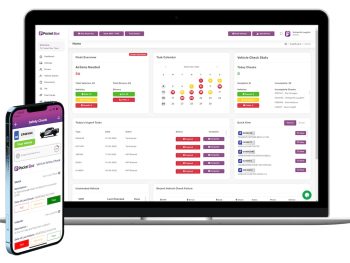The vast majority of SMEs still use manual processes to manage their fleets, although a growing number are turning to digital tools to drive efficiencies.

Software specialist Pocket Box said that over 80% of the businesses it talks to are reliant on spreadsheets, whiteboards and paper-based files to run their vehicles – proving hugely labour-intensive and causing an unnecessary headache to managers, admin staff and drivers.
But the business added that growing numbers are now turning to digital tools, recognising the many benefits they bring to ensure drivers and vehicles are safe and legally compliant. It’s reported strong levels of growth since the launch of Pocket Box Fleet, with over 5,000 managed vehicles already added to the system in its first year.
Jason Laight, chief operating officer of Pocket Box, said: “Business owners are increasingly recognising the need for digitised solutions to better handle fleet-related tasks, gain real-time visibility of critical information and create an electronic audit trail to comply with legal requirements.”
Pocket Box Fleet was launched at the beginning of 2023 to provide a simple way to maintain compliance, reduce risk and save time and money. The web-based management tool automates fleet-related processes and also stores relevant data and documents electronically, with at-a-glance visibility of key vehicle and driver information, tasks and forthcoming renewal dates and deadlines. In the past year, it has been integrated with complementary fleet technology to bring together a growing range of data sources into a single system.
Meanwhile, the Pocket Box app – suitable for any Apple or Android smartphone – enables drivers to electronically complete daily walkaround checks; report vehicle related issues; take photographs of damages and defects; and capture mileage data. It also includes a declaration form, so employees can confirm they are fit to drive and have not consumed unsafe levels of alcohol the previous day. All information is uploaded to the web-based software to support highly effective vehicle, driver and fuel management.
“Smaller fleets have traditionally pushed back against excessive complexity when it comes to technology adoption, so we have created a software solution that prioritises simplicity and ease-of-use,” Laight continued. “This is putting business owners and fleet managers back in the driving seat, giving them added control and complete peace of mind that vehicles are kept road legal and safe, while staff are fit and eligible to drive.”

